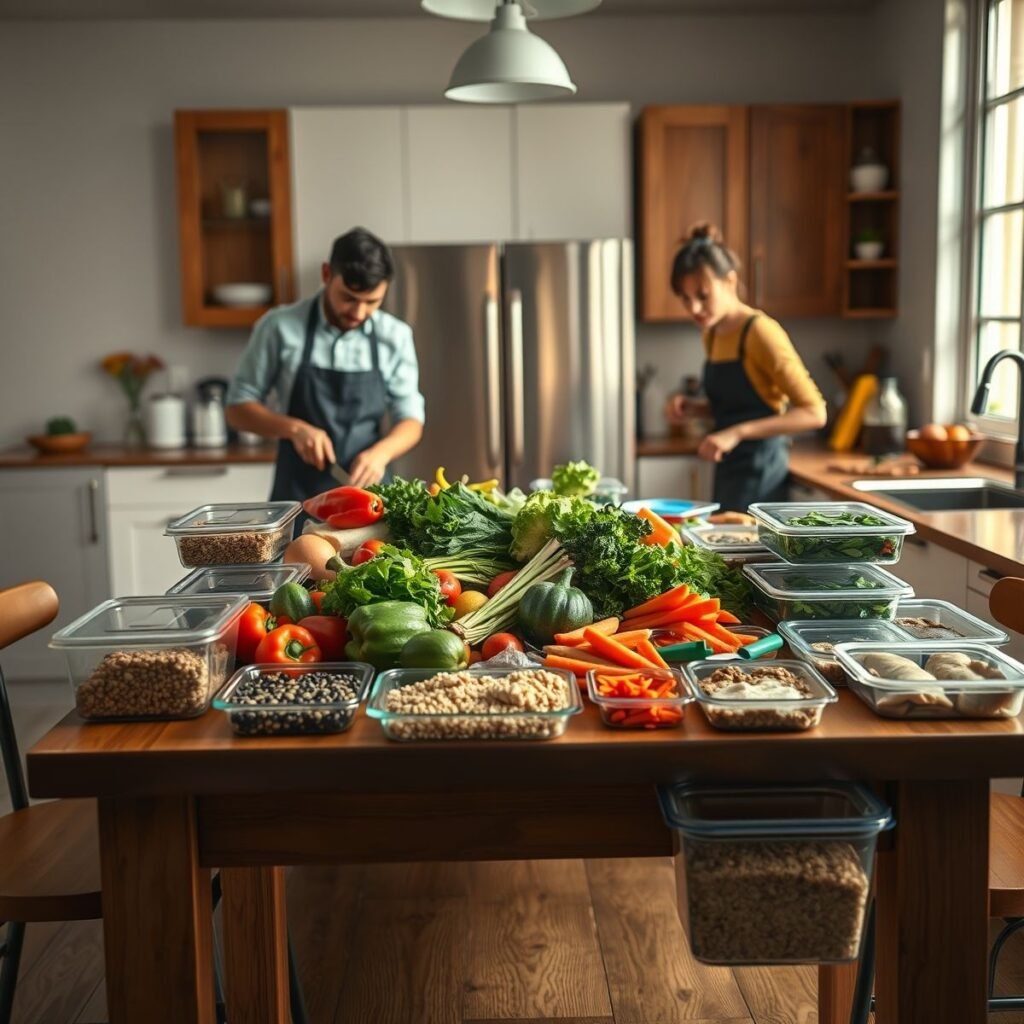Índice do Conteúdo
- Understanding Meal Prep Recipes
- Your Christmas Kitchen Just Got Calmer
- The Benefits of Meal Prep Recipes
- How to Get Started with Meal Prep
- Choosing the Right Containers
- Balancing Nutrients in Meal Prep Recipes
- Make-Ahead Breakfast Ideas
- Lunch and Dinner Meal Prep Recipes
- Snack Prep for Busy Days
- Storing and Reheating Meal Prep Recipes
- Adapting Meal Prep Recipes to Your Lifestyle
- Don’t Miss Out This Item Is a Lifesaver
Understanding Meal Prep Recipes
Meal prep recipes are designed to streamline your cooking process by allowing you to prepare meals in advance. This method not only saves time during busy weekdays but also promotes healthier eating habits. By planning and prepping your meals, you can control portion sizes and ingredient quality, ensuring that you make better dietary choices.
The Benefits of Meal Prep Recipes
One of the primary benefits of meal prep recipes is time management. By dedicating a few hours on the weekend or a day of your choice, you can prepare multiple meals that will last throughout the week. This approach minimizes daily cooking time, reduces stress, and frees up your schedule for other enjoyable activities, making it easier to eat well.
How to Get Started with Meal Prep
To begin your meal prep journey, start by selecting a few recipes that cater to your taste preferences and nutritional goals. Consider dishes that can be easily doubled or are freezable, such as casseroles, soups, or grain bowls. Make a shopping list based on your chosen recipes to ensure you have all the necessary ingredients on hand.
Choosing the Right Containers
Investing in quality meal prep containers is essential for success. Look for containers that are microwave-safe, dishwasher-safe, and BPA-free. Glass containers are often preferred for their durability and non-toxic properties. Additionally, having a variety of sizes will help you store different types of meals and snacks, making organization easier.
Balancing Nutrients in Meal Prep Recipes
When creating meal prep recipes, aim for a balanced plate that includes protein, healthy fats, and complex carbohydrates. Incorporating a variety of vegetables is crucial for adding fiber and essential nutrients. Meal prepping allows for creativity in mixing and matching ingredients, so don’t hesitate to experiment with flavors and textures.
Make-Ahead Breakfast Ideas
Breakfast is often a rushed meal during the week. Consider meal prep recipes like overnight oats, smoothie packs, or egg muffins that can be prepared in advance. These easy and delicious options ensure you start your day with a nutritious meal, setting a positive tone for the rest of your day.
Lunch and Dinner Meal Prep Recipes
For lunch and dinner, focus on dishes that reheat well and maintain their flavor. Stir-fries, pasta dishes, and grain salads are excellent choices. Prepare larger portions and store them in individual containers for grab-and-go convenience. This approach not only saves time but also helps you avoid unhealthy takeout options.
Snack Prep for Busy Days
Snacking can derail healthy eating habits, but meal prep recipes can help you stay on track. Prepare snacks like cut vegetables with hummus, yogurt parfaits, or homemade energy balls in advance. Having healthy snacks readily available will prevent you from reaching for less nutritious options when hunger strikes.
Storing and Reheating Meal Prep Recipes
Proper storage is essential for keeping your meal prep recipes fresh and safe to eat. Store meals in the refrigerator for up to four days, or freeze them for longer preservation. When reheating, ensure that meals are heated thoroughly to eliminate any foodborne bacteria, especially when using the microwave.
Adapting Meal Prep Recipes to Your Lifestyle
Meal prep recipes are highly adaptable to fit various lifestyles and dietary needs. Whether you’re following a vegetarian, vegan, or keto diet, there are endless possibilities to explore. Customize your meal prep routine to suit your preferences and find joy in the process of cooking ahead.



